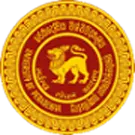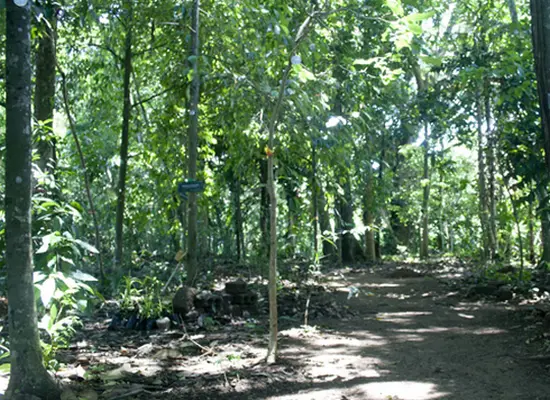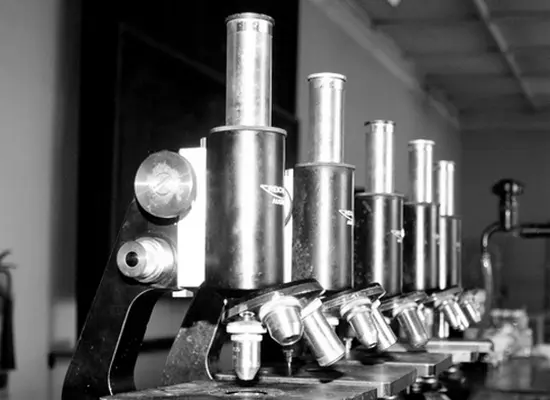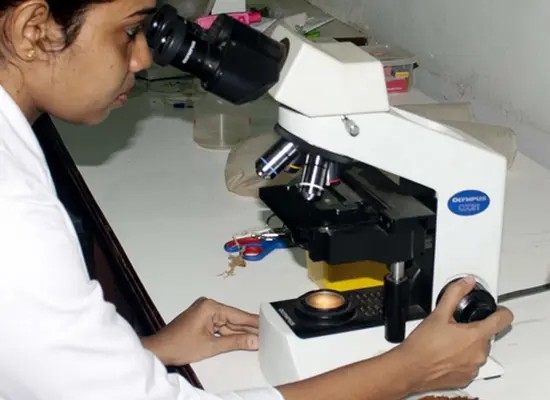The Department has facilities and resources to provide complete academic and research programmes in Plant Sciences. Lecture theatres with multimedia, internet and audio facilities and undergraduate teaching laboratories, sufficiently well equipped to conduct laboratory classes are available.
In addition, laboratories have been set up for research in various disciplines, such as Ecophysiology - for conservation, reproductive biology, restoration ecology and forest resources research; Plant Systematics – for research in species limits and phylogeny of endemic taxa with taxonomic ambiguities; Forestry/Ecology – for forest regeneration, succession and invasive plant species; Soil Science, Nitrogen Fixation and Soil Fertility – for characterization and mass production of rhizobia; Toxicology and Genetics – for genetic resource conservation and breeding of crop wild relatives; Microbiology – water quality analysis, antimicrobial coumpounds from plants; Bacterial phylogrouping, Plant Pathology – for natural disease resistance mechanisms in plants; Fresh produce Technology – for fruit, vegetable, cut flower and foliage handling, extension of vase life; Cryptogammic plants – for research in taxonomy, biogeography, evolution, ecology and conservation biology of bryophytes and other cryptogammic plants and Molecular laboratory.
The facilities of research laboratories are utilized for undergraduate and postgraduate teaching. The Department has a range of equipment, including Gas Liquid Chromatogram and Gas analyzers for analysis of head space gas in fresh produce stores; sophisticated microscopes and stereomicroscopes with digital camera and image projection facility for research and teaching; microtome facility for anatomical studies; PCR apparatus, a range of electrophoresis apparatus, centrifuge facilities for molecular biology research; leaf area meter for vegetative phenology work; Relascopes for estimation of diameter basal area and height and timber volume and hemispherical photography in assessing the forest cover and the light intensity in forests regeneration studies. During the laboratory and field classes, the students learn to use the instruments and their applications. The cold rooms are used for fresh produce storage experiments at different temperature and humidity conditions. Some of these facilities are also extended to other Departments.
A Computer Unit with access to internet was set up in 2005 for the Special Degree students in Botany. This facility is also used by General Degree students when needed for assignments and laboratory work. A glasshouse, plant house, collection of preserved plants/fungi/diseased specimens and field space are available for students’ teaching and research activities. The Department also has a large collection of herbarium specimens which is used for teaching and research. In addition, the Department has a well-maintained botanic garden with numerous land and water plants used for practical classes.
A collection of both local and international journals is available for reference to the students and staff in the Department. A collection of many valuable taxonomy books preserved from its inception and another collection of books left by late Professor S Balasubramaniam are housed in the Department. The students have access to these in addition to the large collection of text books and periodicals available at the Science Library, which is in close proximity to the Department.






